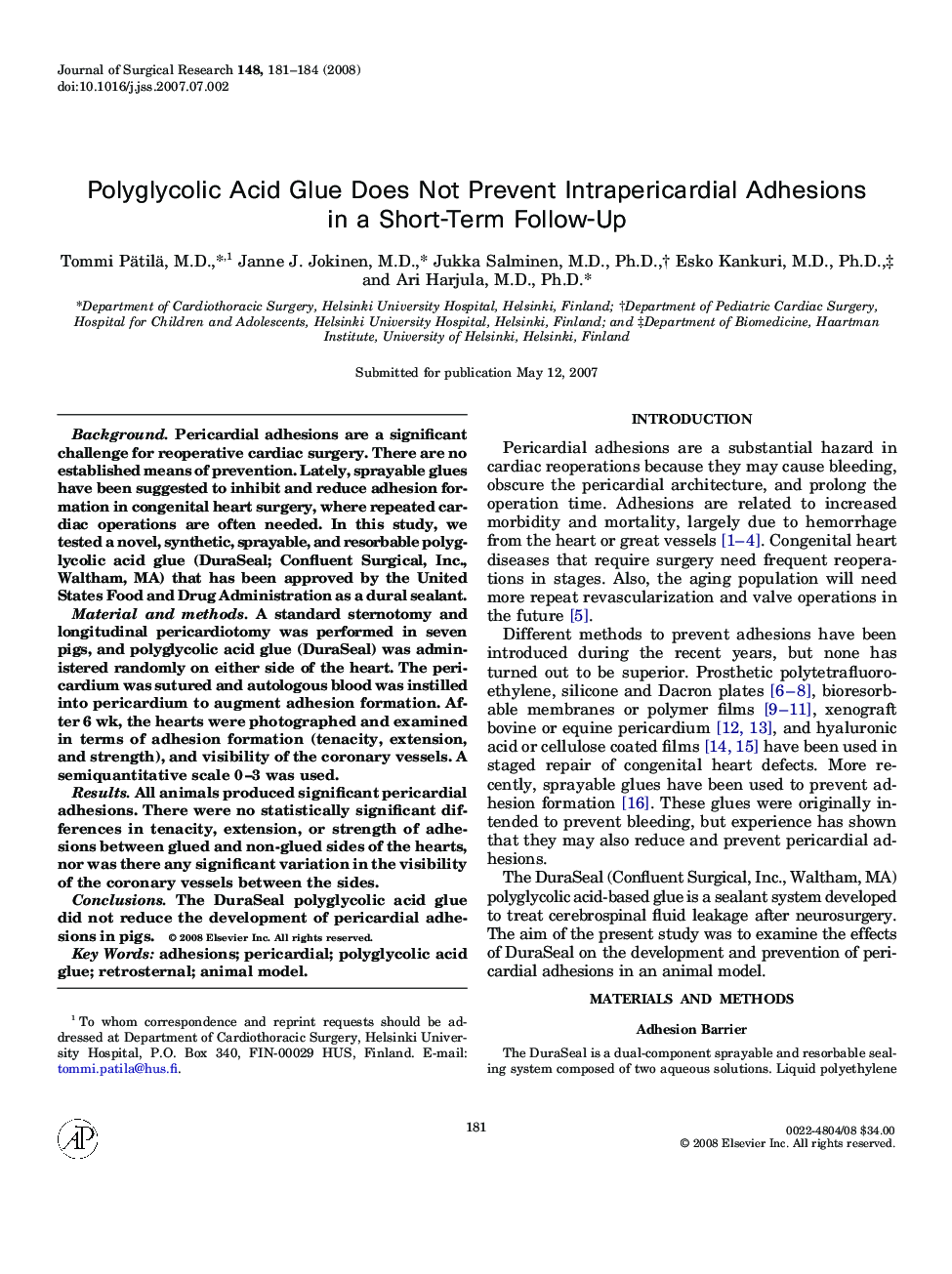| Article ID | Journal | Published Year | Pages | File Type |
|---|---|---|---|---|
| 4304104 | Journal of Surgical Research | 2008 | 4 Pages |
BackgroundPericardial adhesions are a significant challenge for reoperative cardiac surgery. There are no established means of prevention. Lately, sprayable glues have been suggested to inhibit and reduce adhesion formation in congenital heart surgery, where repeated cardiac operations are often needed. In this study, we tested a novel, synthetic, sprayable, and resorbable polyglycolic acid glue (DuraSeal; Confluent Surgical, Inc., Waltham, MA) that has been approved by the United States Food and Drug Administration as a dural sealant.Material and methodsA standard sternotomy and longitudinal pericardiotomy was performed in seven pigs, and polyglycolic acid glue (DuraSeal) was administered randomly on either side of the heart. The pericardium was sutured and autologous blood was instilled into pericardium to augment adhesion formation. After 6 wk, the hearts were photographed and examined in terms of adhesion formation (tenacity, extension, and strength), and visibility of the coronary vessels. A semiquantitative scale 0–3 was used.ResultsAll animals produced significant pericardial adhesions. There were no statistically significant differences in tenacity, extension, or strength of adhesions between glued and non-glued sides of the hearts, nor was there any significant variation in the visibility of the coronary vessels between the sides.ConclusionsThe DuraSeal polyglycolic acid glue did not reduce the development of pericardial adhesions in pigs.
